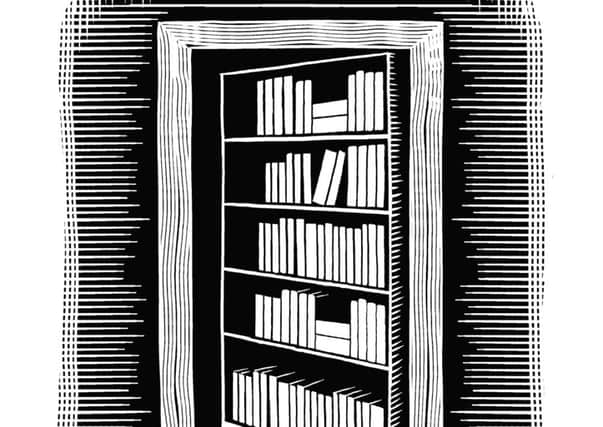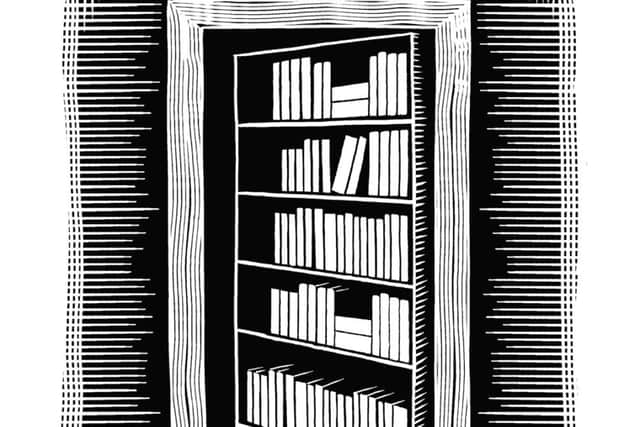44 Scotland Street: Boys are so physical


Elspeth flopped down on one of the Duke’s faded chintz-covered sofas, now theirs, patting the cushion beside her in an invitation for Matthew to join her. As they sat there, surveying their new home about them, there was at first a silence of the sort that comes when one has done something important but not yet determined the full implications of one’s actions. After a few minutes, almost in unison they said, “So …” and then stopped.
“You go ahead,” said Matthew.
“No you.”


Matthew smiled. “I know that we haven’t actually moved in yet, even if we’ve got the keys. But I was just going to say: so here we are. That’s all. And you?”
“I was going to say exactly the same thing,” said Elspeth.
Advertisement
Hide AdMatthew looked thoughtful. “Do you think we’ve done the right thing?”
“I was just about to ask you that,” said Elspeth. “My answer, though, is: yes. I can’t wait to live in the country. It’ll be such fun for the boys; they’ll have so much room … Boys are so physical. They love to run around, to climb trees …”
“… and bruise their knees,” said Matthew.
“Exactly.” She looked up at the ceiling. “What’s that song about bruising both your hearts and your knees? Isn’t there a song about that?”
“There is,” said Matthew. “But I can’t remember what it’s called. It’s about friendship, I seem to recall.”
“Just like …” Elspeth tried to remember another song about friendship, but none came to mind; there were so many songs about being in love, but people did not sing quite so much about being in friendship. And yet, she thought, there was no reason that one might not “be in friendship” just as one might be in love. Could friendship intoxicate in the way in which love did? Could you feel as elated about friendship as you could about love?
“Like John Anderson my Jo,” suggested Matthew. “Robert Burns.”
“Isn’t that about being married?”
Advertisement
Hide Ad“Yes, it is. But I think it’s about friendship too. You could apply those words to an old friend – to one with whom you’ve shared a great deal.”
She looked at him. She had read an article somewhere that many men were lonely because they did not know how to handle friendship, because they did not attend to their friendships in the way in which women did. You could not simply leave friendship to look after itself. Friendship was a plant that required careful tending – and that was something that women did rather better than men.
Advertisement
Hide AdThe same article had discussed the contemporary idea of bromances, which were strong friendships between men. There was nothing physical about these, but they were romantic in a way in which male friendships usually were not. David and Jonathan had a famous bromance, the article said, and there were other examples, but male reticence and tabus meant that it was not a common thing.
Those in a bromance could not only play golf or squash with one another, but could go out for dinner afterwards, or could simply sit and talk; in short, they could do all the things that women did so easily and so naturally with their female friends but that men were frightened to do.
Matthew was an only child, as was Elspeth. She remembered feeling lonely in her childhood and the envy she had felt for those who had brothers and sisters. Matthew, she imagined, had felt the same, although they had never talked about it, just as they had never discussed the question of friendship. What friends did he have? There was Angus Lordie, for whom Matthew had acted as best man when Angus had married Domenica, and there was Bruce Anderson, whom he occasionally met in the Cumberland Bar. Angus was older than him, though, and that must limit the friendship to some extent, and Bruce was vain and unreliable, and hardly a friend to be encouraged.
Who else was there? There were various friends from his days at the Academy, and he met these at regular reunions, but none of them seemed to be particularly close. Big Lou? She did not count because men and women tended to be friends with one another in a totally different way – and anyway, no wife would encourage a husband to develop friendships with other women.
She wondered whether perhaps Matthew did not need male friends; perhaps he was one of these men who lived entirely through their family. Her own father had been a bit like that, she remembered. His life had revolved around his wife, his daughter, his dog, and his motorbike. That was his universe, and he seemed uninterested in engaging with anything very much outside that.
While Elspeth was thinking about this, Matthew had risen to his feet and was inspecting a bookcase at the end of the room.
Advertisement
Hide Ad“Elspeth,” he said. “There’s something odd about this bookcase. Come and take a look.”
She got up to join him. She bent forwards to examine one of the books – part of the library that the Duke had thrown in with the sale. “I’ve far too many books,” he had said. “And that can be so confusing.”
Advertisement
Hide AdOne of the titles stood out. Eastern Approaches by Fitzroy Maclean. She reached for the book and opened it. Inside, on the title page, the author had written: J: something I wrote some time ago, but I hope you enjoy it. Fitzroy. She closed it. Her father had said something about Fitzroy Maclean, but she could not remember exactly what it was. And who was J. Johannesburg?
“Not the books,” said Matthew. “It’s just that I get the impression there’s something behind this bookcase.”
Elspeth laughed. “No,” she said. “Don’t tell me. A concealed room.”
Elspeth laughed again. “There are no concealed rooms,” she said. “Concealed rooms are a cliché too far: nobody has concealed rooms any more. Nobody.” She imagined the estate agent’s advertisement for a house so endowed: four bedrooms (one concealed) …
“Au contraire,” said Matthew. “I think that’s exactly what we might have.”
© 2015 Alexander McCall Smith
• Alexander McCall Smith welcomes comments from readers. Write to him c/o The Editor, The Scotsman, Level 7, Orchard Brae House, 30 Queensferry Road, Edinburgh, EH4 2HS or via e-mail at [email protected].